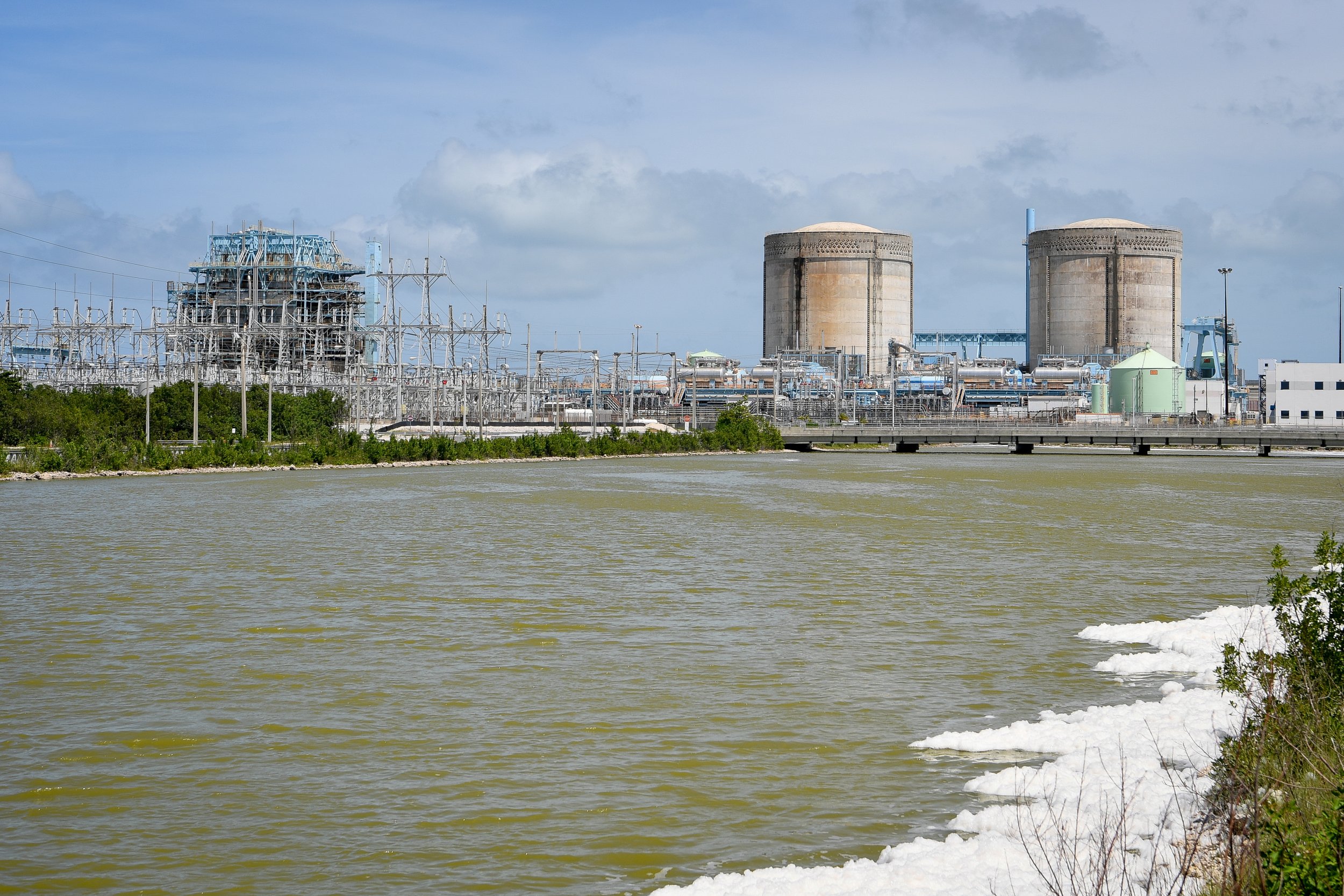
Update | Operators of a nuclear power plant in the path of Hurricane Irma kept one reactor operating during the cyclone, although the plant had not finished meeting stricter federal safety requirements implemented after Japan's Fukushima accident.
The Turkey Point nuclear plant in Homestead, along the southeast Florida coast, experienced an unrelated failure in one reactor's cooling system during the storm. A part called the steam generator's feed regulating valve failed on Sunday night, prompting engineers to shut down the reactor.
The cooling system malfunction did not cause any radiation leakage, according to the Nuclear Regulatory Commission.
The failure of the valve at Turkey Point was unrelated to larger, federally mandated improvements that are still pending, including improving seals on exterior doors and improving floodwater drainage mechanisms near "key" cooling pumps, according to a flood- and hurricane-preparedness report the power plant sent to the Nuclear Regulatory Commission in June — a requirement of post-Fukushima regulations.
Poor seals on exterior doors could lead to "substantial leakage" in a hurricane, the report also said.
At Turkey Point, the rooms that hold the cooling pumps "do not have a roof and are exposed to the rainfall," the report read. In the event of flooding, operators of the plant would drain the rooms with pumps that run on diesel fuel. A spokesman for the plant said the facility always has a week's worth of fuel on hand in case of a power outage — but he did not say how the pumps are refueled during a crisis.
Scott Burnell, a spokesman for the Nuclear Regulatory Commission, said commission staff had not signed off on Turkey Point's proposals to meet federal guidelines, but an initial review "concluded the plant's analyses are acceptable."
But critics of the plant say further delay could be dangerous.
"The pump room is Turkey Point's Achilles heel," said David Lochbaum, director of the Nuclear Safety Project for the Union of Concerned Scientists.
"Without Component Cooling Water during an accident, workers must deploy backup to backup systems," he added. "At Fukushima, workers were unable to accomplish this task in time to prevent three reactor cores from overheating."
Power failures, which are common during hurricanes, are another concern to nuclear watchdogs. The risk of a serious accident rises significantly in a power outage, according to the Nuclear Regulatory Commission.
Turkey Point did keep one of its two reactors operating as the storm approached, only taking it offline after the valve malfunctioned.
"When there's a possibility to lose power, why would you take the risk of increasing that?" Maggie Gundersen, founder of Fairewinds Energy Education and former nuclear industry employee, told Newsweek.
"It's just absolute hubris and a huge risk to the population."
The most likely problem for a nuclear power plant in a hurricane, added Henry Sokolski, executive director of the Nonproliferation Policy Education Center, "is a loss of power to the plants."
"Most people don't understand this, but you need electricity going into a power plant — two sources of it generally to be on the safe side — to make sure that the electric motors that control things like safety control rods are running," he added.
But the Nuclear Regulatory Commission spokesman Burnell said Turkey Point's response to Irma was "entirely acceptable."
"There was no reasonable concern that the storm would challenge plant safety from a flooding perspective," Burnell said.
Story was updated to provide more context about the plant's preparedness.
Uncommon Knowledge
Newsweek is committed to challenging conventional wisdom and finding connections in the search for common ground.
Newsweek is committed to challenging conventional wisdom and finding connections in the search for common ground.
About the writer
Melina Delkic is a staff writer for Newsweek covering the guns and drugs beat.
To read how Newsweek uses AI as a newsroom tool, Click here.








